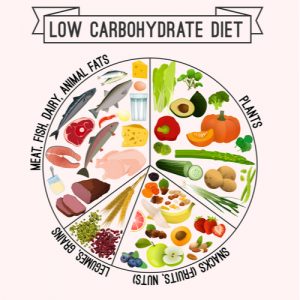Researchers find that carbs can affect fertility in both women and men. Choosing the right type and amount of carbs may improve the chances of conception.
For couples trying to conceive, eating a healthy diet is an important means of maximizing their chances of success. Reproductive health and function can be affected by dietary choices. The U.S. Department of Health and Human Services and the U.S. Department of Agriculture recommend that carbohydrates make up 45 to 65 percent of the total daily calories. However, not all carbs are of equal nutritional quality, and therein lies the problem for many people. Carbohydrate consumption is all too often centered on highly processed foods offering little nutritional benefit, but plenty of unhealthy added sugar, fats, sodium and chemicals.
Two Basic Groups of Carbohydrates
In the typical diet, carbohydrates serve as the body’s primary source of energy. There are two basic groups of carbohydrates, simple and complex. Simple carbs, sometimes called simple sugars, digest quickly and easily because they’re made up of just one or two sugar units. These sugars include glucose, fructose, sucrose and lactose. Complex carbohydrates are made up of larger groups of units. Starch and fiber fall into this group. Because they are more complex than simple carbohydrates, they take longer to digest, and their energy release is slower and steadier.
Natural simple carbohydrates are found in fruit, vegetables and milk. These foods also furnish essential nutrients. Other forms of simple carbohydrates, such as refined sugar and high fructose corn syrup, don’t do that. Most people don’t eat enough fresh fruit, instead of getting many of their simple carbs from sugary drinks, highly processed, packaged baked goods and sweets that offer little nutritional benefit. Complex carbohydrates are found in vegetables, whole grains and beans, foods that tend to be rich in health-enriching nutrients and fiber.
 How Carbs Can Affect Fertility
How Carbs Can Affect Fertility
Quality and quantity are the two primary carb considerations when it comes to male and female fertility. Another element at play is the current state of overall health, particularly regarding body weight, as that can influence decisions regarding the role of carbohydrates in the diet. A diet heavy in highly processed, low-fiber carbs increases the risk of obesity. Being overweight or obese can reduce fertility in both men and women. For men, sperm count and quality can be reduced by excess weight. With women, the excess weight can affect hormonal balance, interfering with the process of ovulation. A low-carb diet that also features better carb choices can help achieve a healthier weight, improving fertility.
Research shows that low to moderate carbohydrate consumption, focusing on carb quality, can have fertility benefits for both women and men. However, this doesn’t mean following a highly restricted carb diet, but rather keeping carbs below 45 percent of the daily calories. Avoiding highly processed, low-fiber carbs can improve egg health and help optimize the hormonal balance essential to conception and maintaining a healthy pregnancy. In men, researchers found that sperm concentration goes down as consumption of carbohydrates and the glycemic load goes up. Sperm quality increases with better nutrition, making it important to concentrate on nutrient-rich carbs and reduce consumption of those that provide little nutritional worth.
Maximize Potential With Quality Carbs
A daily diet that includes a lot of highly processed carbs can affect fertility. By choosing better, more nutritious carbohydrates, including plenty of fresh vegetables and fruits, couples can help maximize their fertility potential. Naturally, fertility is influenced by a variety of factors. However, more of those factors can be controlled and improved, the better the odds of reaching the successful conception goal. Start making better carb choices today.





